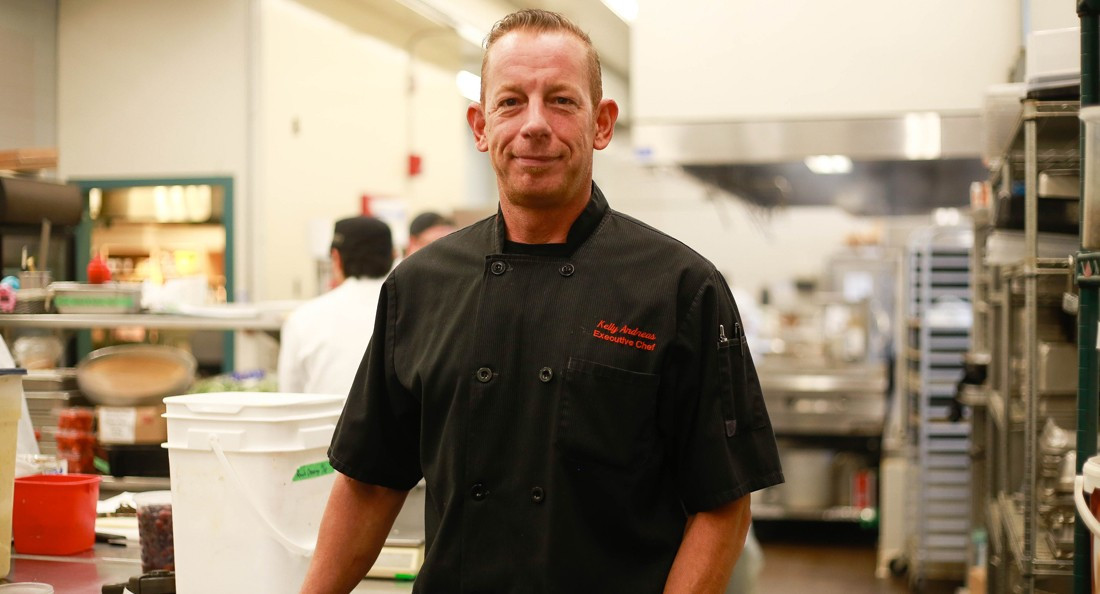Ethical conYUMption
Any University of Winnipeg (U of W) student or staff who’s ever chowed down on a mushroom burger or pulled-pork poutine knows that plenty of thought and care goes into the food that’s served on campus. But beneath the obvious pleasure of that delicious campus grub is a model for sustainability that’s setting an example for all other post-secondary institutions to follow.
The Association for the Advancement of Sustainability in Higher Education (AASHE) publishes an annual report called the Sustainable Campus Index. AASHE evaluates and rates post-secondary schools across North America to determine their level of sustainability. The index names the most sustainable schools in a number of categories, including buildings, transportation and water.
Plans to grow fresh vegetables like tomatoes and cucumbers are in the works at the Diversity greenhouse.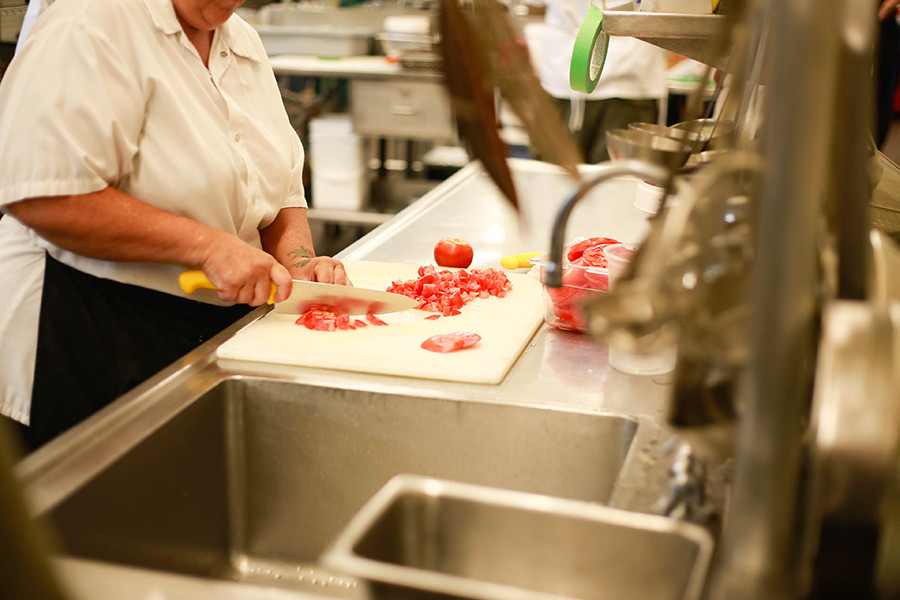
The U of W has been the top Canadian school in the food and dining category for the past five years. In 2019, it reached the top spot for the entire continent.
Monika Urbanski is the data and content manager for AASHE. Urbanski says that, when determining the Sustainable Campus Index, the organization takes a multifaceted approach to defining sustainability.
“AASHE defines sustainability in an inclusive way, encompassing human and ecological health, social justice, secure livelihoods and a better world for all generations,” Urbanski says.
“In practical terms, a sustainable campus is one in which all aspects of campus life, operations, administration and education help to preserve a better life for future generations. This means that institutions’ operations are ecologically healthy, administration is fair and just, and students are educated and engaged in ways that promote sustainability literacy and social justice.”
The kettle station is where large batches of food are made for five campus locations and Buffalo Stone Café at FortWhyte Alive.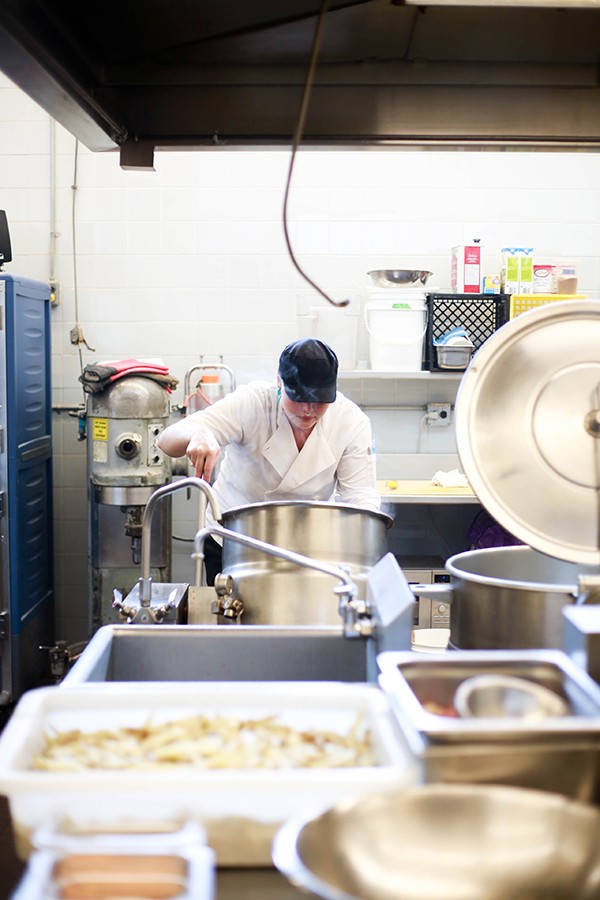
Diversity Food Services handles food service at the U of W and operates five cafeterias on campus: Pangea’s Kitchen in Riddell Hall, The Malecon on the fourth floor of Centennial Hall, Elements in Richardson College, Tony’s in Leatherdale Hall and The Canteen in Duckworth Centre.
Diversity’s executive chef Kelly Andreas says creating a sustainable campus kitchen is about a lot more than just the ingredients that go into meals.
“It’s required a lot of diligence,” Andreas says, “a lot of relationship-building, a lot of research, thinking outside the box and finding avenues towards accomplishing what we accomplish.”
Kitchen staff at Diversity Food Services also prepare food sold in Vita Health stores.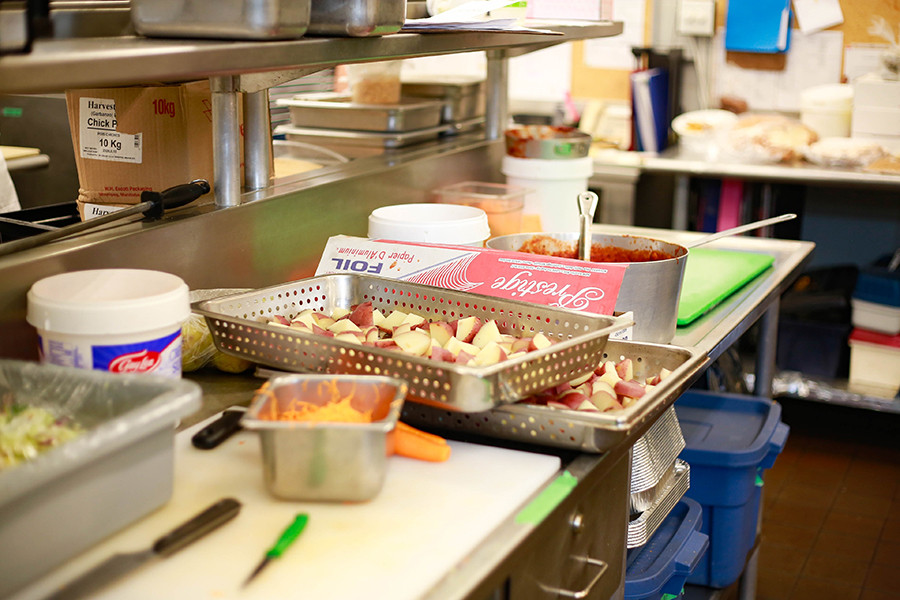
Andreas says one of Diversity’s more time-consuming but successful sustainability projects has been ensuring that all chicken served on campus is raised without antibiotics (RWA).
“We are the only university using 100 per cent RWA chicken,” he says. “That was a year-and-a-half-long process to get that streamlined and find a group able to meet our requirements in the volumes we’re going through ... Many different universities have different aspects of RWA chicken, but (we’re the only school) to have 100 per cent certified RWA across the board, whether it be dark meat, bone-in chicken, chicken wings – everything.”
Converting to RWA chicken presented unique challenges, particularly regarding the best-selling food item on campus: chicken fingers.
Diversity Food Services serves up to 200 pounds of RWA (raised without anitbiotics) chicken fingers per week.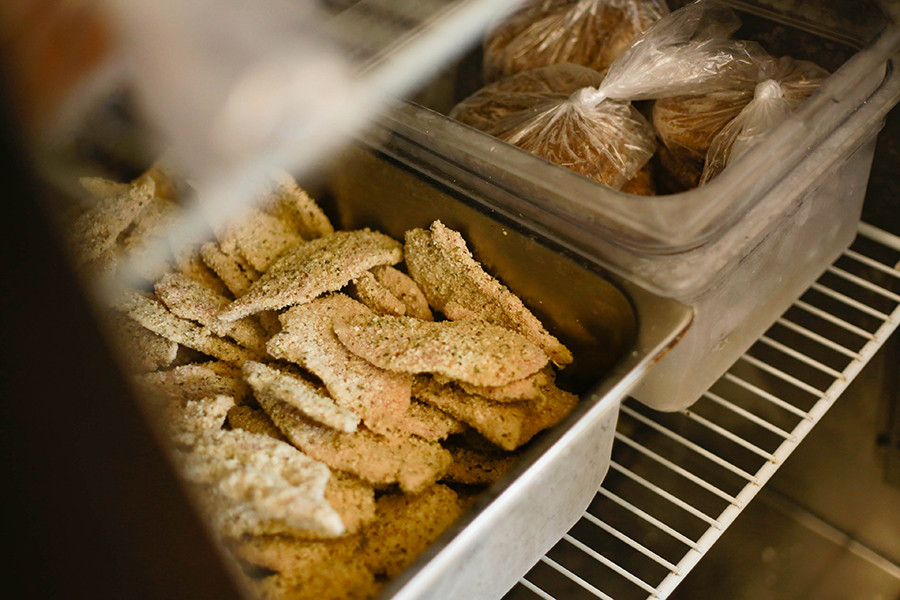
“We had to start producing all of our chicken fingers on campus,” Andreas says. “There’s nobody in North America right now that’s making pre-made, breaded chicken fingers (that are RWA). We go through, no word of a lie, an average of 100 to 200 pounds of chicken fingers a week. So, in order to remain 100 per cent RWA certified, we had to make our own.
“Not only does that help us keep our promise (to serve RWA chicken), but it also creates more jobs, because we then had to hire and educate more people in order to meet those demands every day.”
The issue of job creation is another aspect of Diversity’s commitment to sustainability.
“From the aspect of social sustainability, we work with marginalized individuals to make sure they have employment opportunities,” Andreas says. “Whether it be first-time employment (or) their first time working as Canadians, we offer great training and a safe, beneficial workplace for them.”
Sustainability doesn’t just affect those who work in the kitchen, but also how kitchen workers do their jobs.
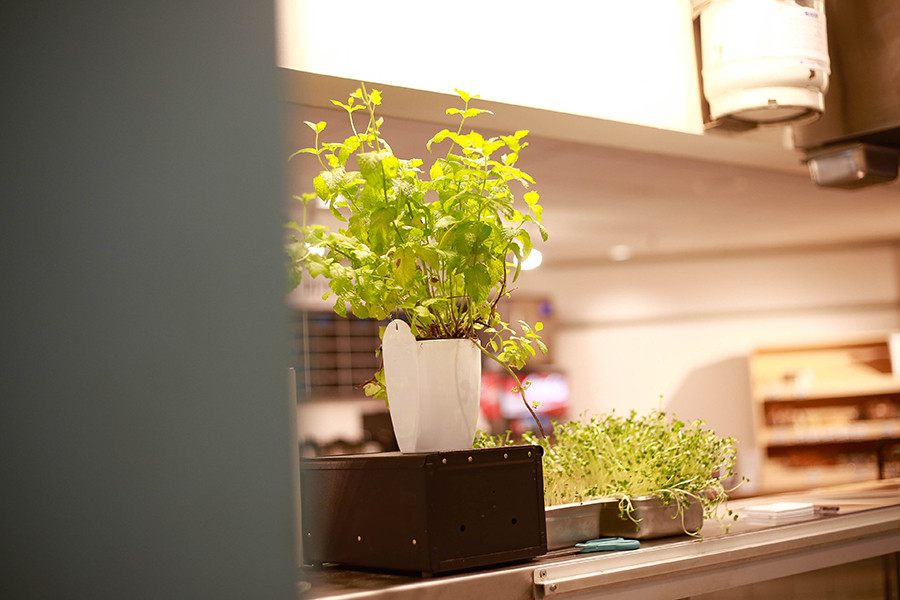
Fresh herbs growing on the counter at Pangea's Kitchen
“All of our prep refuse gets composted,” Andreas says. “All of our packaging supplies, our food presentation, everything that we use is either recyclable, reusable or compostable, so our land waste is very minimal.”
Those ecological concerns are also addressed by sourcing ingredients close to home through direct relationships with local farmers.
“Instead of buying supplies from a middleman, we were able to work directly with farmers so we could set a schedule for volume and velocity of what we order,” Andreas says. “That way, the farmer can plan an appropriate amount to meet our needs. They’re assured of the sale, (so) they could plan extra vegetables for us because they know exactly where they’re going.
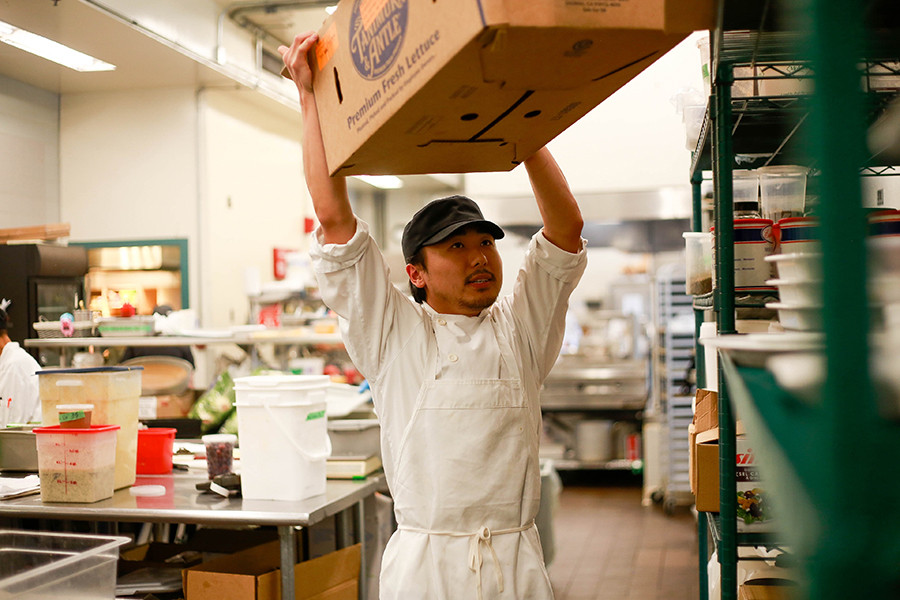
Diversity says sustainable practices are about where ingredients come from, how food is served and who's employed to make it.
“That’s sustainable from both a financial and environmental aspect. It’s environmental, because you’re cutting down on greenhouse gas emissions through transport. When ordering from large suppliers, vegetables come from wherever across Manitoba and need to be shuttled from one spot to another. These come direct from farm to table. Financially, all that money gets put back into within a 50-kilometre radius.”
Diversity has recently started its own greenhouse to produce some of the vegetables and all of the herbs they use. Andreas says these continuing processes of innovation and improvement show that the ongoing project of food sustainability is possible anywhere.
“The most common obstacle is that people think (sustainability) is not achievable,” he says. “They shy away from the challenges. But if we can do it, anybody else can. The people we employ, the amount of people we feed on a daily basis, we accomplished with due diligence, time and perseverance. Everybody can and should be doing it. We’re very proud to be leaders in what we’re doing for North America.”
Published in Volume 74, Number 1 of The Uniter (September 5, 2019)

